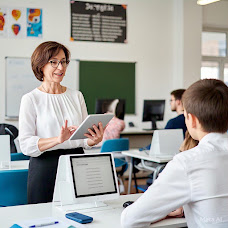The EdTech Revolution and Its Impact on Contemporary Education

The EdTech Revolution and Its Impact on Contemporary Education The emergence of educational technology (EdTech) represents a profound transformation in global teaching and learning practices. This ongoing shift involves the adoption of advanced digital tools designed to make education more personalized, interactive, and accessible. Moving beyond traditional uniform instructional structures, contemporary pedagogical approaches now incorporate adaptive, learner-centered methods that address the needs of diverse student populations (SchoolPosterPrinters, n.d.). This transition marks a significant point in the technological evolution of education, continuing a historical pattern in which digital innovations reshape how learning takes place. Modern advancements such as Artificial Intelligence (AI), Virtual and Augmented Reality (VR/AR), blockchain , and data analytics have introduced a new phase that emphasizes participation, flexibility, and equitable access (OctoProctor, n.d.). ...



Comments
Post a Comment